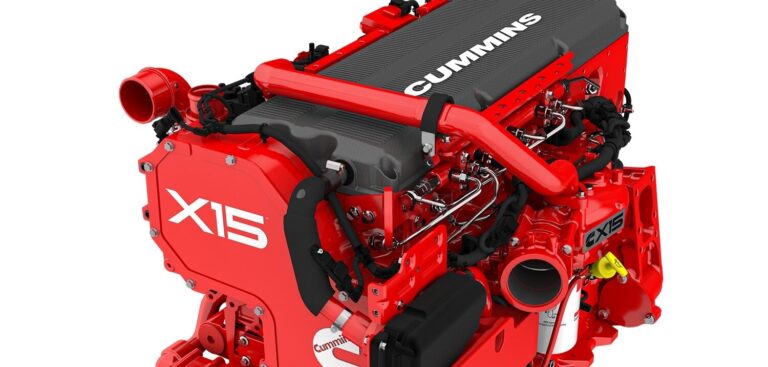Diesel engine developer Cummins and California-based Tula Technology, a specialist in systems development to improve combustion efficiency, have announced the results of a collaborative study, authored by Vijay Srinivasan, NVH engineer and customer program manager at Tula, the effectiveness of Tula’s diesel Dynamic Skip Fire (dDSF) in reducing nitrogen oxides (NOx) and carbon dioxide (CO2 ) emissions on a Cummins X15 HD Efficiency Series diesel engine.
Dynamic Skip Fire is a cylinder deactivation control strategy that ascertains which cylinders to cut on a dynamic basis to best meet torque demands, while saving fuel and maintaining performance. Tula’s original Dynamic Skip Fire (DSF) software has been shown to significantly reduce CO2 emissions in gasoline engines and has been in production since 2018 with more than one million vehicles on the road. dDSF is the Dynamic Skip Fire application for diesel engines.
Low-load cycle performance was estimated with a well-calibrated powertrain simulation tool to accurately capture the low-load system operation and emissions. The system showed a 74% reduction in NOx and a 5% reduction in CO2 compared with current clean diesel technologies, while dDSF also saved 20% in fuel, validating it as a more fuel-efficient means of reducing NOx. Cummins and Tula demonstrated the results in a Class 8 truck powered by a Cummins X15 HD engine.
“Our mission at Cummins is to make people’s lives better by powering a more prosperous world, and we accomplish this through innovation,” said Lisa Farrell, director, Accelerated Technology Center for Cummins Inc. “Tula’s dDSF technology provides significant benefits to reducing NOx and CO2 emissions under low-load vehicle operation, which will aid our efforts to produce more reliable, more powerful engines while meeting our environmental goals.”
The full paper can be found here : https://www.sae.org/publications/technical-papers/content/2021-01-0450/


